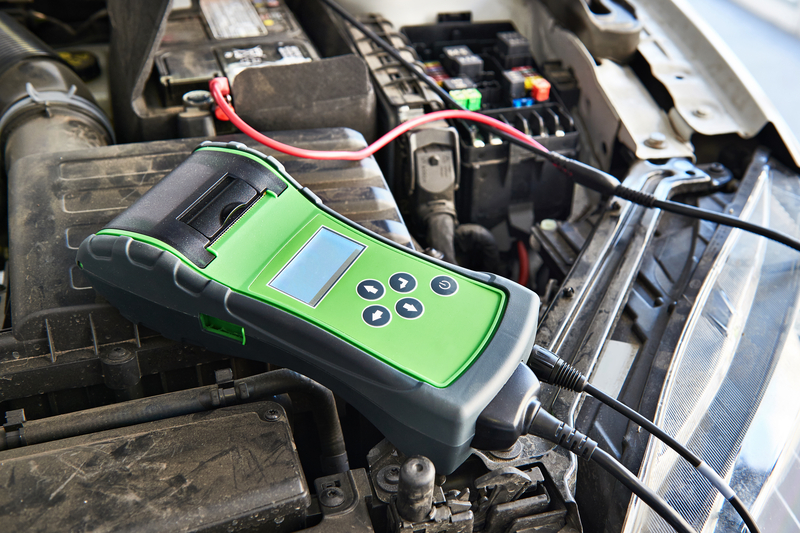Don't let cold weather zap your vehicle battery

For most drivers a vehicle battery is just a black box underneath the hood of their vehicle.
To Gale Kimbrough batteries are like life itself, something to be nurtured and protected and every once in a while given a recharge.
“A battery can just quit on you without any warning if you’re not taking care of it,” said Kimbrough, who is known as Mr. Battery by his coworkers at Interstate Battery. “Whenever you get your oil changed you should also have your battery and electrical system checked.”
Harsh temperatures—winter or summer—can suck the lifeblood out of a battery. At zero degrees Celsius (32 degrees F), a battery loses approximately half of its charging power.
“That’s not a problem if the battery has plenty of reserve power,” Kimbrough said. “A weak or old battery may not have enough reserve, however.”
Kimbrough grew up in the auto business with a father who owned a repair shop. Whenever he worked on a vehicle, the elder Kimbrough meticulously inspected the charging systems of his customer vehicles. He taught the young Kimbrough to check water fluid levels, belts, alternator and cables.
His interest in things mechanical lead Kimbrough to a career as an electrical engineer. He attended University of Texas and served as a helicopter mechanic for the101st Airborne during the Vietnam War.
Afterward he returned home and partnered with his father in the auto repair business. Along the way he became an ASE-certified master mechanic.
Later he joined Interstate Batteries where he became manager of technical services. Based in Dallas, the company was founded in 1952 and named for the new freeway system that was being constructed across America.
“Many drivers may not even know what kind of battery their vehicles use,” Kimbrough said. “But they should ask a professional auto technician to inspect their electrical system before traveling out of town.”
Basic automobile batteries have remained unchanged for decades. They contain lead and plastic components along with an electrolyte solution of sulfuric acid and water. The solution interacts with the lead to generate power when you turn the key.
To help keep your vehicle battery operating properly, Kimbrough had the following suggestions for winter weather:
- Inspect your vehicle’s charging system every three months or every oil change. Batteries that are more than three years old should be tested more frequently.
- Maintain charge levels using a battery charger as needed, especially in regions facing extreme temperatures.
- Always get the battery checked before taking a long road trip. Have a professional mechanic inspect battery cables, posts and fasteners. Cables should have no fraying and must be secured firmly to the battery. Also look for cable corrosion, which reduces power from flowing from the battery.
- Get battery terminals cleaned, especially if they have any buildup of crust. Use a wire brush or battery cleaner spray.
- Make sure replacement batteries meet or exceed manufacturer recommendations for your specific vehicle. Battery ratings and size are particularly important to assure enough power for harsh weather conditions.
- Store your vehicle inside during harsh weather or invest in a battery heater to prevent loss of power.
- Refer to your owner's manual or ask your service advisor before adding fluid to your battery. Using tap water can shorten battery life since it often contains chemicals and minerals. Also, the acid in battery fluid can damage clothing, skin and eyes.
- Don't “trickle charge” or jump start a frozen battery. The same is true for batteries low on electrolyte fluid. Doing so could result in battery rupture or explosion.
“A fully charged battery is the best defense against cold weather and vehicle non-starts,” Kimbrough said. “In cold weather, engines require more cranking amps and batteries are less efficient, reducing their charge acceptance and ability to start an engine.”